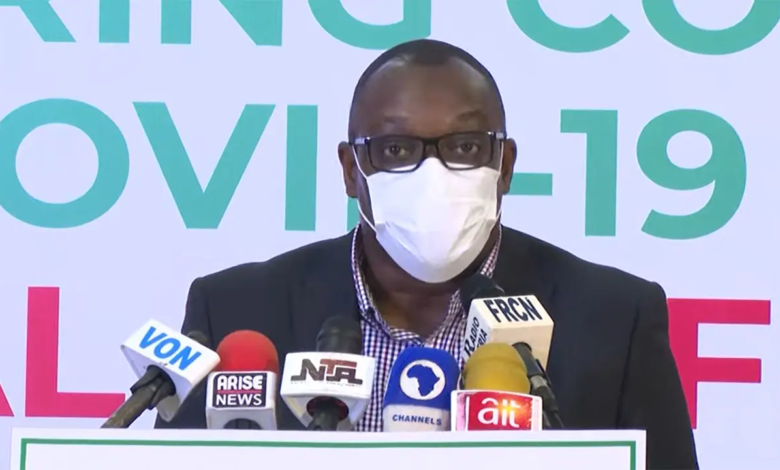Nigerian Authorities Alert Health Workers On Diphtheria Outbreak
The Nigeria Center for Disease Control (NCDC) says the disease has been reported in four states so far.

The Nigeria Center for Disease Control and Prevention (NCDC) has directed health workers to “maintain a high index of suspicion” for cases of Diphtheria disease.
The directory is contained in a public health advisory signed by Ifedayo Adetifa, Director General of the NCDC on Friday, Jan. 20.
The disease control centre said that it has learned of and attended to reports of cases in the southwestern state of Lagos and the northwestern state of Kano, and is surveilling developments in Yobe and Osun states where cases of the disease have equally been reported.
In addition to the advisory released by the NCDC, the ministry of health in Kano state where the disease has been most reported said it has recorded several suspected cases of diphtheria in the state.
“As at Jan. 20, 2023, we have recorded 100 cases from 13 Local Government Areas (LGAs),” said Aminu Tsanyawa, the state’s Commissioner of health.
He added that the state has only confirmed eight of the suspected cases to be Diphtheria and is awaiting more results.
“We have lost three lives among the eight confirmed cases,” he said.
Diphtheria is a contagious infection caused by the bacterium Corynebacterium diphtheriae, with symptoms typically manifesting 2-5 days after exposure.
Sore throats and fever are early symptoms of the disease but “in severe cases, the bacteria produces a poison (toxin) that causes a thick grey or white patch at the back of the throat.”
The poison produced by the bacteria may likely enter the bloodstream of an infected person, leading to advanced damage such as “inflammation and damage of the heart muscle, inflammation of nerves, kidney problems, and bleeding problems due to low blood platelets.” The damage to the heart muscles might lead to an irregular heart rate while the inflammation of the nerves may lead to paralysis.
Diphtheria disease is spread through direct contact between humans; it can also be airborne through droplets released during coughs and sneezes, as well as direct contact with contaminated objects.
Because of the reputation of diphtheria as “one of the most feared childhood diseases,” the World Health Organisation (WHO) advises that children all over the world be immunised against the disease through the administration of “a 3-dose primary series during infancy,” and 3 booster doses during childhood and adolescence.
In Nigeria, health authorities recommend that the “3-dose primary series” be administered to infants in the sixth to tenth, and 14 weeks of life.
Cases of diphtheria in Nigeria are said to be underreported with only a few outbreaks reported. “The highest number of cases was documented in the Northeastern region in 2011. 98 cases of diphtheria with a case fatality of 21 per cent in Kimba village, Borno State.”
The NCDC in its public health advisory notes that those most at risk of contracting the disease are “children and adults who have not received any or a single dose of the pentavalent vaccine (a diphtheria toxoid-containing vaccine), people who live in a crowded environment, people who live in areas with poor sanitation and healthcare workers and others who are exposed to suspected/confirmed cases of diphtheria.”
Considering their high exposure to diphtheria, health workers in Nigeria have been advised to get vaccinated against the disease. They have also been directed to closely monitor close contacts of confirmed cases of the disease, administering “antibiotics prophylaxis and started on diphtheria antitoxin treatment when indicated.”
Individuals exhibiting symptoms of the disease have also been advised to immediately isolate themselves and to inform their local government, the state surveillance officer or the NCDC.
Support Our Journalism
There are millions of ordinary people affected by conflict in Africa whose stories are missing in the mainstream media. HumAngle is determined to tell those challenging and under-reported stories, hoping that the people impacted by these conflicts will find the safety and security they deserve.
To ensure that we continue to provide public service coverage, we have a small favour to ask you. We want you to be part of our journalistic endeavour by contributing a token to us.
Your donation will further promote a robust, free, and independent media.
Donate HereStay Closer To The Stories That Matter




